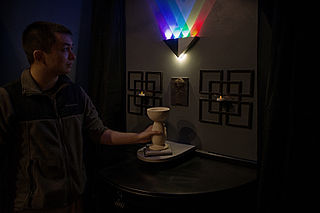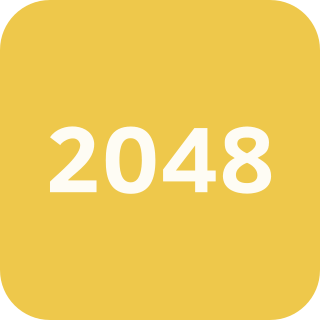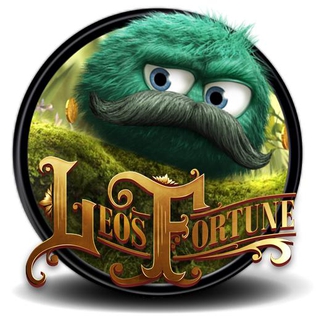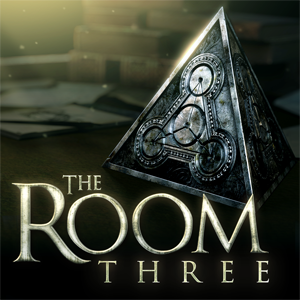Freedom is a computer program designed to keep a computer user away from the Internet for up to eight hours at a time. It is described as a way to "free you from distractions, allowing you time to write, analyze, code, or create." The program was written by Fred Stutzman, a Ph.D student at the University of North Carolina at Chapel Hill.

A scavenger hunt is a game in which the organizers prepare a list defining specific items, which the participants seek to gather or complete all items on the list, usually without purchasing them. Usually participants work in small teams, although the rules may allow individuals to participate. The goal is to be the first to complete the list or to complete the most items on that list. In variations of the game, players take photographs of listed items or be challenged to complete the tasks on the list in the most creative manner. A treasure hunt is another name for the game, but it may involve following a series of clues to find objects or a single prize in a particular order.
Professor Layton is a puzzle adventure video game series and transmedia franchise developed by Level-5. The property consists primarily of seven main video games, a mobile spin-off, an animated theatrical film, and an anime television series, while additionally incorporating an array of secondary titles and media, including a crossover game with Capcom's Ace Attorney series.

The Witness is a 2016 puzzle video game developed and published by Thekla, Inc. Inspired by Myst, the game involves the exploration of an open world island filled with natural and man-made structures. The player progresses by solving puzzles, which are based on interactions with grids presented on panels around the island or paths hidden within the environment. The game provides no direct instructions for how these puzzles are to be solved, requiring the player to identify the meaning of symbols in the puzzles. A central design element to the game was how these puzzles are presented so that the player can achieve a moment of inspiration through trial and error and gain that comprehension themselves.

999: Nine Hours, Nine Persons, Nine Doors is a visual novel and adventure video game developed by Chunsoft. It is the first installment in the Zero Escape series, and was released in Japan in December 2009 and in North America in November 2010 for the Nintendo DS. The story follows Junpei, a college student who is abducted along with eight other people and forced to play the "Nonary Game", which puts its participants in a life-or-death situation, to escape from a sinking cruise liner. The gameplay alternates between two types of sections: Escape sections, where the player completes puzzles in escape-the-room scenarios; and Novel sections, where the player reads the game's narrative and makes decisions that influence the story toward one of six different endings.
Submissions for mobile apps for iOS are subject to approval by Apple's App Review team, as outlined in the SDK agreement, for basic reliability testing and other analysis, before being published on the App Store. Applications may still be distributed ad hoc if they are rejected, by the author manually submitting a request to Apple to license the application to individual iPhones, although Apple may withdraw the ability for authors to do this at a later date.

Elonka Dunin is an American video game developer and cryptologist. Dunin worked at Simutronics Corp. in St. Louis, Missouri from 1990–2014, and in 2015 was Senior Producer at Black Gate Games in Nashville, Tennessee. She is Chairperson Emerita and one of the founders of the International Game Developers Association's Online Games group, has contributed or been editor in chief on multiple IGDA State of the Industry white papers, and was one of the Directors of the Global Game Jam from 2011–2014. As of 2020 she works as a management consultant at Accenture.

An escape room, also known as an escape game, puzzle room, exit game, or riddle room is a game in which a team of players discover clues, solve puzzles, and accomplish tasks in one or more rooms in order to accomplish a specific goal in a limited amount of time. The goal is often to escape from the site of the game.

Zero Escape, formerly released in Japan as Kyokugen Dasshutsu, is a series of adventure games directed and written by Kotaro Uchikoshi. The first two entries in the series, Nine Hours, Nine Persons, Nine Doors (2009) and Zero Escape: Virtue's Last Reward (2012), were developed by Spike Chunsoft, while the third entry, Zero Time Dilemma (2016), was developed by Chime. Zero Escape is published by Spike Chunsoft in Japan, while Aksys Games and Rising Star Games have published the games for North America and Europe respectively.

2048 is a single-player sliding tile puzzle video game written by Italian web developer Gabriele Cirulli and published on GitHub. The objective of the game is to slide numbered tiles on a grid to combine them to create a tile with the number 2048; however, one can continue to play the game after reaching the goal, creating tiles with larger numbers. It was originally written in JavaScript and CSS over a weekend, and released on 9 March 2014 as free and open-source software subject to the MIT License. Versions for iOS and Android followed in May 2014.

Leo's Fortune is a platform treasure based game for iOS, Android, Windows Phone and the Amazon App Store developed by 1337 & Senri LLC. It revolves around Leopold, the title character, a mustached "fluff ball" roly-poly whose fortune (gold) is stolen. The player guides Leopold through 2.5 dimensional platform levels as he searches for his treasure. There are currently 24, divided into 5 chapters.

Blek is a 2013 puzzle video game for iOS and Android by Kunabi Brother, a team of brothers Denis and Davor Mikan. The player draws a snakelike black line that recurs in pattern and velocity across the screen to remove colored dots and avoid black dots. It is minimalist in design, features excerpts of Erin Gee, and takes inspiration from Golan Levin, the Bauhaus, and Japanese calligraphy. The brothers designed the game as a touchscreen adaptation of the Snake concept and worked on the game for over six months. It was released in December 2013 for iPad, and was later released for other iOS devices and Android.

The Room Three is a puzzle video game developed by Fireproof Games. It was released for iOS in November 2015, Android in January 2016 and Microsoft Windows in November 2018.

Notpron is an online puzzle game and internet riddle created in 2004 by German game developer David Münnich. It has been hailed by fans, journalists, and Münnich himself as "the hardest riddle available on the internet".

Windosill is a 2009 puzzle video game by Vectorpark for Microsoft Windows, OS X, Linux, web browsers, and iOS. The player advances through eleven different rooms by interacting with each level's environmental objects. It was developed by Patrick Smith, an artist who taught himself to animate and program the game in Adobe Flash. He was inspired by a variety of painters and artists. The game was first released for Windows, OS X, and web browsers in 2009, and was later ported to the iPad in 2011, with several added features.

Clicker Heroes is an idle game that was developed by American independent studio Playsaurus. It was originally released for browsers in 2014, for mobile devices in 2015, and for Xbox One and PlayStation 4 consoles in 2017. The game is a spinoff of Playsaurus's earlier game Cloudstone, from which it uses many graphic elements.

SethBling is an American video game commentator and Twitch video game live streamer known for YouTube videos focused around the 1990 side-scrolling platform video game Super Mario World and the 2011 sandbox video game Minecraft. He created original and derivative video games, devices and phenomena in Minecraft, without using Minecraft mods. He created an interpreter for the programming language BASIC and an emulator for the 1977 home video game console Atari 2600 in Minecraft. In addition to Minecraft builds that run without mods, he created plugins for the game.

Petscop is a YouTube horror web series by Tony Domenico, made to resemble a YouTube Let's Play series. The videos follow "Paul", the protagonist, exploring and documenting a supposedly "long-lost PlayStation video game" titled Petscop. The 24-episode series ran from March 12, 2017, to September 2, 2019. The series received widespread coverage for its storytelling, authenticity, surrealism, and its active community of viewers.
Cluetivity is a geolocation-based and augmented reality (AR) software platform owned by Life Action Games GmbH. Founded in 2010 by a group of scavenger hunt and tech fans, Cluetivity offers both outdoor and indoor interactive games for iOS devices. The company is currently led by CEO Michael Schiemann.
Wordle is a web-based word game created and developed by Welsh software engineer Josh Wardle. Players have six attempts to guess a five-letter word, with feedback given for each guess in the form of colored tiles indicating when letters match or occupy the correct position. The mechanics are similar to the 1955 pen-and-paper game Jotto and the television game show franchise Lingo. Wordle has a single daily solution, with all players attempting to guess the same word.














